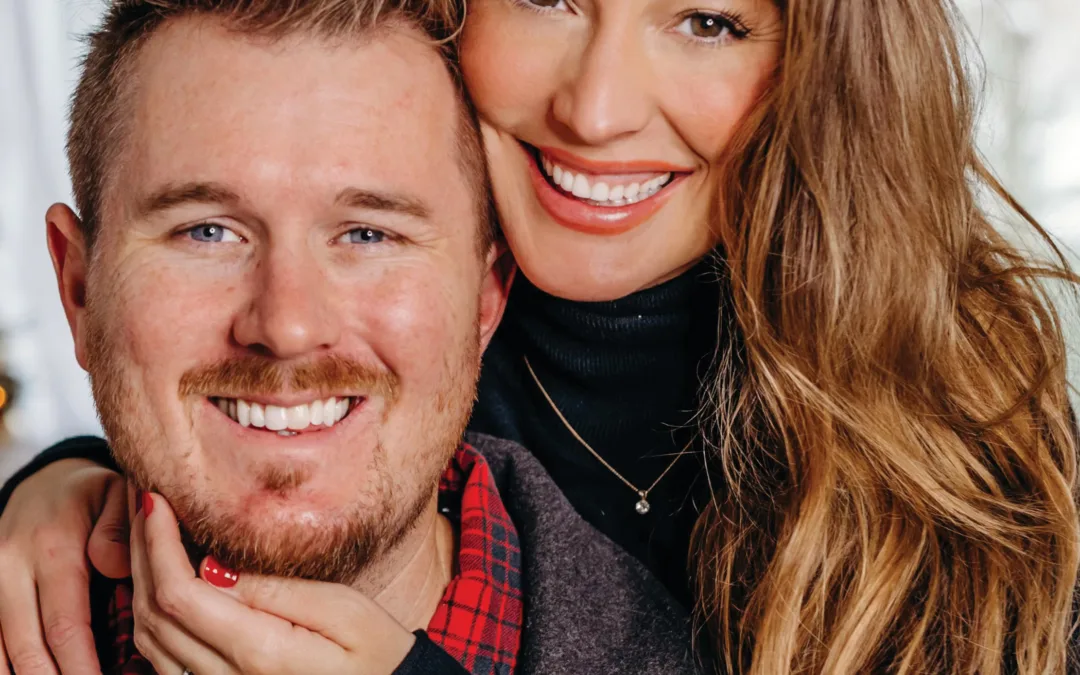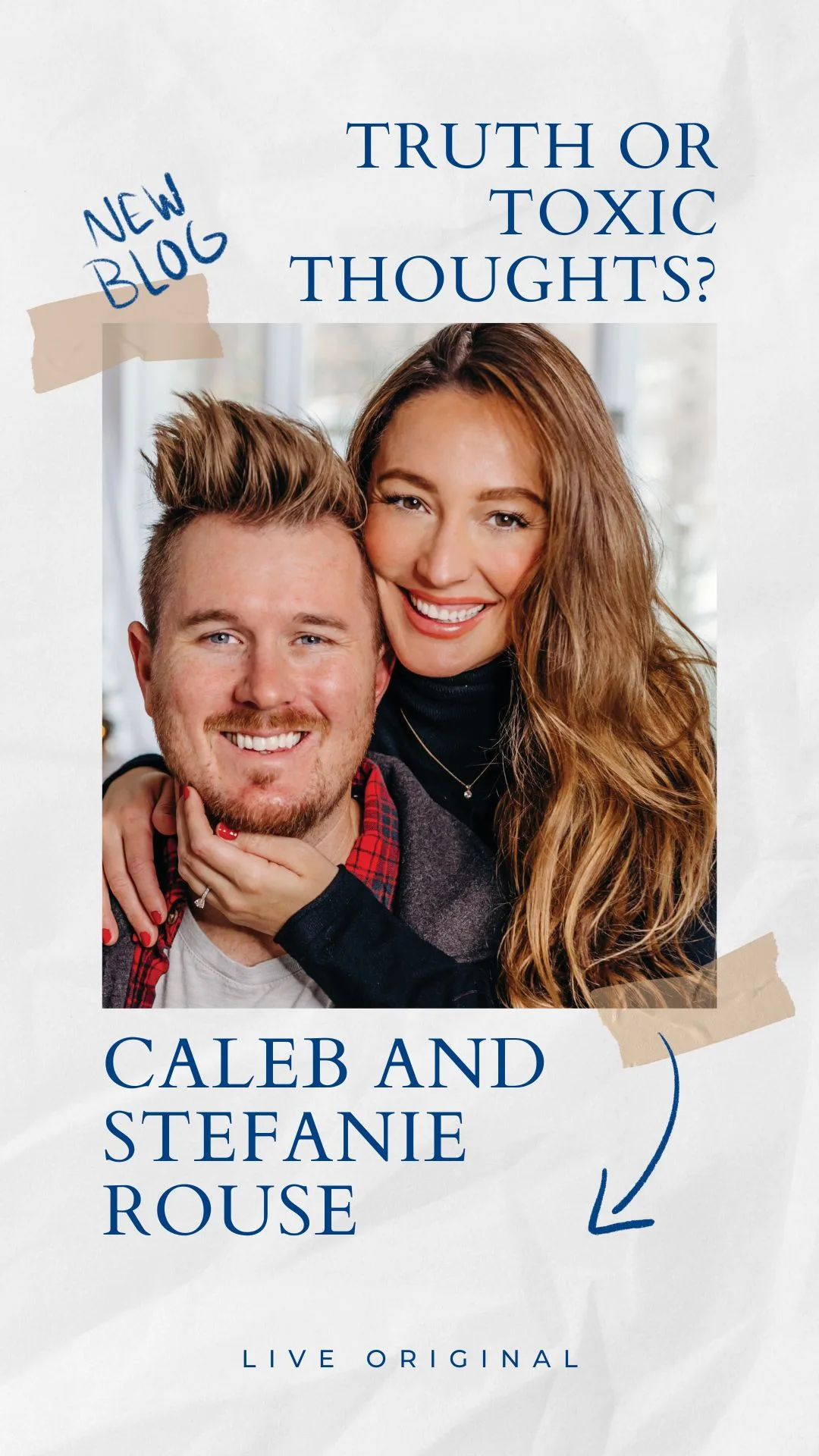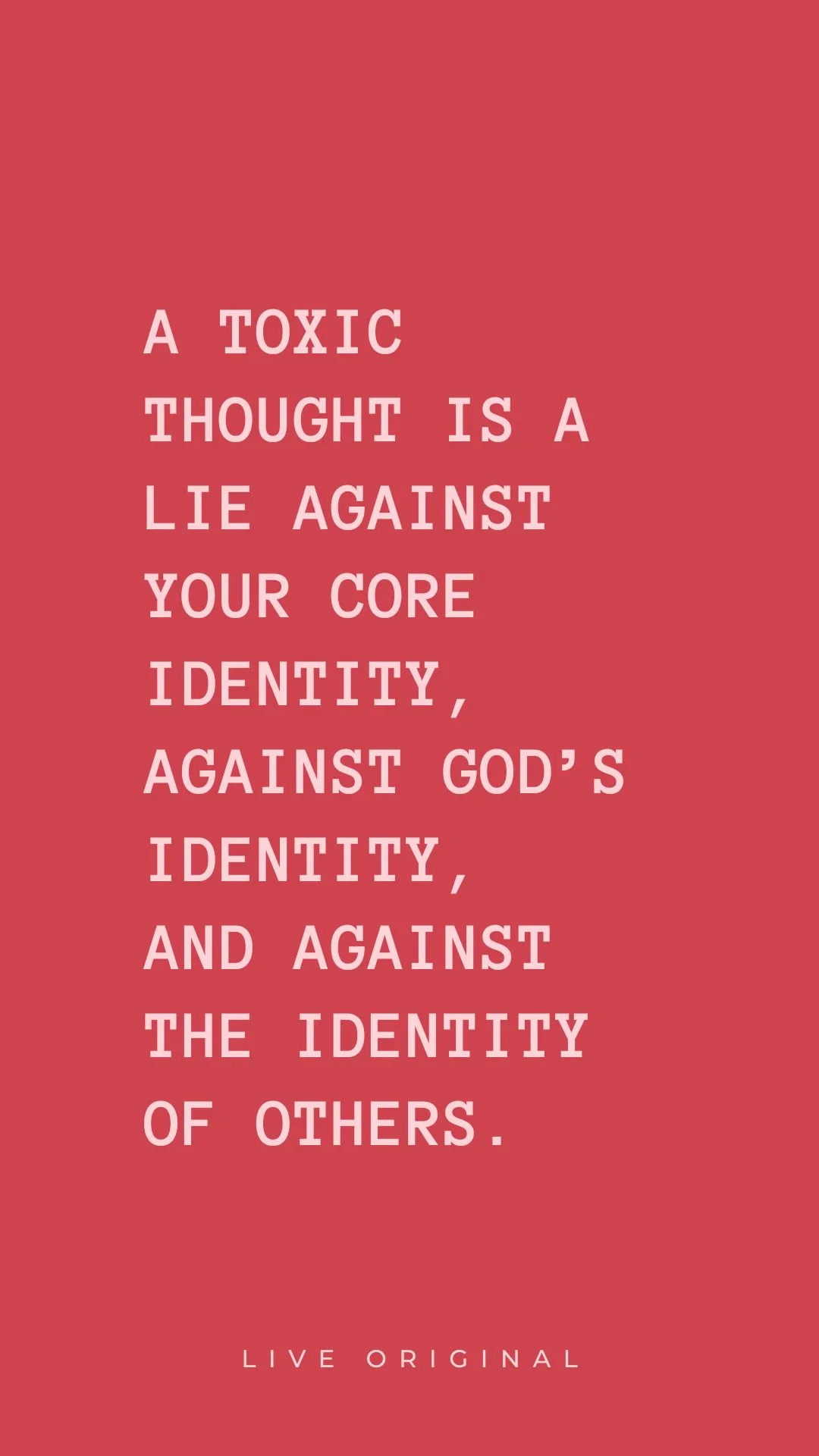
Truth or Toxic Thoughts?
Many times, there are things underneath the surface that keep us from having a thriving relationship. These can be the effects of a past breakup, childhood abuse, bullying, or any number of other distressing experiences. These old pains can repeatedly come up in our minds and cause us to think things that aren’t true about ourselves, others, and God. We refer to this as having “toxic thoughts.”
A toxic thought is a lie against your core identity, against God’s identity, and/or against the identity of others.1 It stems from a violation of love and trust and/or from pain we have suffered. We put our faith in a person, and something they do or say (or fail to do or say) blindsides us and causes emotional injury. The experience leads us to believe something untrue, and when we accept the untruth, it enforces a toxic thought.
Pain we experience can come from anyone or any circumstance. Anyone that we allow to speak into our lives can trigger us to believe toxic thoughts. When we respond by jumping to conclusions about who we are, who God is, and who others are, based on what we see or hear, we are creating belief systems that may or may not be accurate.
The pain can hit the worst when we see it as being caused by those we should be able to trust the most or whom we put the most trust in—the ones we should be able to feel safe with. Often, those we perceive as having let us down have titles such as God, parent, grandparent, teacher, best friend, coach, boyfriend, or spouse. These are the ones who are supposed to be for us, to be on our side. They are not supposed to harm us but help us. In our hurting world, though, hurt people hurt people, no matter what title they hold. Our toxic thoughts stem from a violation of love or trust—including the times we feel like we have failed ourselves.
Toxic thoughts can end up feeling much more like truth than the actual truth. Because we live in a fallen world, our perception of reality is faulty. We can be quick to believe our experiences and what others say (or what we think they are implying), especially if we don’t know to believe something different.
How do we know if we have toxic thoughts? And how were they formed in the first place?
Each human who has walked on this earth has most likely experienced one or many toxic thoughts. They are not merely emotions. They are instead the beliefs that can trigger many of the negative emotions we feel. Our primary emotions are happiness, sadness, disgust, fear, surprise, and anger. When we feel sadness, fear, anxiety, loneliness, confusion, emptiness, longing, etc., we will often find toxic thoughts underneath them.
Consider this example of how toxic thoughts come about: each time you get an email from your boss, your heart drops. Although you’ve been a teacher at the same school for the last five years, and in all that time you’ve only received one negative email, that one email still haunts you. It was that moment, three years ago, when a parent-teacher conference went horribly wrong. The parent lashed out at you, and you responded with unkindness. The principal (your boss) sent you a strongly worded email the next day, and you had a rough meeting with her. Since that incident, you’ve received nothing but kind emails or normal updates from your boss, just like it had been before that conflict.
But your heart rate still increases every time you see your boss’s name in your inbox. You start to overcompensate and stay later at work, and you say yes to all the extra things she asks you to do.
The reason you are feeling anxious in this scenario is that the initial email led to a toxic thought about your identity that now gets triggered every time you see the boss’s name.
The toxic thought it triggers is I’m not good enough or I’m a failure. Your brain rushes to the thought, Oh no, they’re going to tell me I did something wrong again.
In order to start changing this pathway, you have to identify what you are feeling. You have to acknowledge, Wow, when I get an email from my boss, it triggers the toxic thought, “I’m not good enough.”
That’s a very strong belief to hold. The toxic thoughts we believe about ourselves, others, and God might start with a seed of doubt, but they can quickly grow into the biggest tree, with roots that overrun our thoughts, beliefs, and lives because our experience points to the toxic thoughts as truth.
But Jesus came to save us. He is the Savior of our world, and He knew His identity. He heard His Father’s voice, and He knew the mission He was called to on this earth. Jesus knew that each of us would be born cursed to sin. That we would feel the pain and shame and lack of knowing our true identity. That we would search our whole lives trying to find who we really are. That we would look for love and meaning in unsatisfying and harmful places.
When we choose to believe toxic thoughts about ourselves, it keeps us from discovering the identity that we are destined to have. We continually substitute lies for the truth of God, and we let those toxic thoughts run rampant.
The good news is that the toxic thoughts we believe are, in fact, lies. They aren’t true, and they don’t need to remain as part of our identity. The next time you feel anxious or sad, try tracing back what caused you to have the reaction you did, and what toxic thought you might be believing underneath it.
1. Terry Hargrave and Franz Pfitzer, Restoration Therapy: Understanding and Guiding Healing in Marriage and Family Therapy (New York: Routledge, 2011).
Adapted from Wholehearted Love: Overcome the Barriers That Hold You Back in Your Relationship with God and Others—and Delight in Feeling Safe, Seen, and Loved by Stefanie and Caleb Rouse, releasing in April 2024.

















